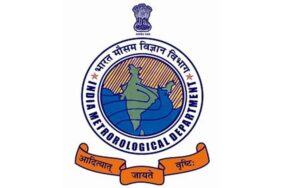Electronics industry body advocatesdevelopment of component ecosystem to promote local manufacturing
~ Recommends creation of reasonable duty differential between the finished goods and its key components to aid domestic manufacturing
~ Reiterates demand to reduce GST rate for Air Conditioners from 28% to 18% and 12% for 5 Star models
~ Emphasizes on bringing Indian EPR (Extended Producer Responsibility) policy at par with international standards
Delhi, May 24, 2019:
Consumer Electronics and Appliances Manufacturers Association (CEAMA), an all India apex body representing Consumer Electronics, Home Appliances and Mobile Industry, advocated the development of a strong component ecosystem for encouraging local manufacturing. It further recommended that the government should create a reasonable duty differential between the finished goods and its key components to aid local manufacturing. Putting an impetus on Make in India, the industry further recommended initiating Phased Manufacturing Program (PMP) for those goods and components which are largely import-dependent and should be localized over a period. Conquering the same the industry requested for a PMP on Air Conditioners and its inputs that can be manufactured in India.
The industry is further urged to review the existing Free Trade Agreements (ASEAN+ Thailand) as they have acted as a deterrent in the growth of the entire electronics industry. It was proposed that any new FTA should be done with a consumption-based economy rather than manufacturing-based economy.
The matter was discussed during CEAMA’s 5th Executive Committee meeting. Some of the other points which were deliberated included Star Labelling for Air Conditioners & Refrigerators and E-Waste management. The recommendations will be presented to the Government for further discussion.
Mr Kamal Nandi, President, CEAMA and Business Head & EVP, Godrej Appliances, said, “The industry is reeling under pressure since last two years and will need a boost from Government to recover. It is important to develop a component ecosystem for encouraging local manufacturing. The Government should revisit the free trade agreements to encourage domestic manufacturing. We would also like to reiterate our demand to reduce GST rate for Air Conditioners from 28% to 18%. The scorching heat has made it a necessity now. The rating has done a lot of good to consumers and helped in the conservation of energy. But if the energy norms are tightened further, it will push up the manufacturing costs, hampering the sales of higher energy-efficient products. The industry is in discussion with the Government to relook at the energy efficiency table and frequency of the same. We further emphasize on bringing Indian EPR policy at par with international standards. But the industry alone will not be able to fight the e-waste issue. Rather an ecosystem involving all the stakeholders is needed to tackle the menace.”
The committee discussed the Government’s proposal to revisit the energy efficiency table in 2020. The industry acknowledged that India is at par or better than many developed countries even with the current table and as such, there is no compelling need to scale up energy efficiency immediately. The change in the table would only aggravate the problem as the process and technology changes employed to achieve higher energy efficiency, has reached a plateau. Any further technology upgradation would add to the cost that would escalate consumer prices to an unaffordable level. The cost-benefit analysis to buy a 5 Star model works against consumers. Both air conditioners and refrigerators have seen sales of 5-star models plummet, becoming zero in Frost Free refrigerators, entirely due to price. Even, several brands have stopped producing 5-star models and have unsold inventories in trade.
The industry felt a need to have longer intervals between tables and a gap of 4 years was suggested. It was also suggested that an upward revision could be affected before 4 years if 40% of the throughput was of 5-star models, and going forward if 40% throughput is not achieved of 5 star models, status quo could be maintained beyond 4 years.
It was proposed to make Energy Labelling mandatory for Electric Fans and Desert Coolers, to mitigate gap from Air Conditioners & Refrigerators.
The committee reiterated that GST rates for AC should be reduced from 28% to 18% as it’s no longer an item of luxury but necessity.
Extended Producer Responsibility (EPR) under e-waste management and handling rules were discussed at length. The industry submitted that the Indian e-waste rules need to be brought at par with international standards and practices. Currently, 85% of the collection targets are being met through buy back from the informal sector and only 15% is coming from the formal sector. It was recommended to stagger the target across a reasonable number of years to ensure effective compliance by producers. Also, responsibilities should be attributed individually to different stakeholders under the EPR framework, including dealers, refurbishers, bulk consumers, dismantlers, etc. to comply with the rules. The local governments should also be allocated with the responsibility to engage with the informal sector for their formalization. The leakage of e-waste to the informal sector creates imbalances in the flow-back procedure envisaged by the EPR framework. Unless this imbalance is corrected, compliances laid down for the formal sector cannot be fulfilled in reality. The formal sector has limited capacity to recycle e-waste, which may result in e-waste collected through formal channels making its way into informal channels for recycling.








